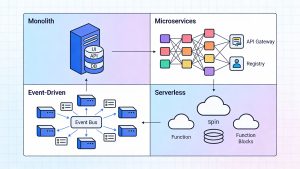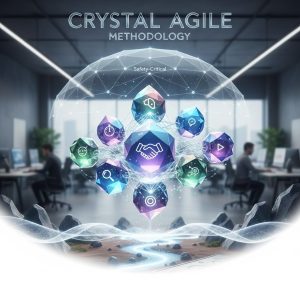Tesla’s tech stack, particularly its custom-built Enterprise Resource Planning (ERP) system called Warp, exemplifies the company’s innovative approach to software development and highlights the growing importance of open source solutions in modern business.
Tesla’s Remarkable Growth
Tesla’s success in recent years has been extraordinary. By the end of September 2021, the company’s production rate had increased to nearly 1 million vehicles per year, a significant jump from 367,000 in 2019. This growth was reflected in Tesla’s financial performance, with automotive sales revenue surpassing $44 billion in 2021, more than doubling the $19 billion recorded in 2019.
The Warp System: Tesla’s Custom ERP Solution
At the core of Tesla’s technological advantage is Warp, a custom-built ERP system developed in 2013 under the leadership of then-CIO Jay Vijayan. This system was created to address the limitations of existing proprietary software, which couldn’t adequately support Tesla’s unique business model and ambitious goals.Key Features of Warp:
- Customizable car configurations
- Rapid customer support
- Streamlined delivery and refund processes
- Seamless interdepartmental communication
The development of Warp demonstrates Tesla’s commitment to tailoring technology to its specific needs, rather than adapting its operations to fit off-the-shelf solutions.
The Case for Open Source in Modern Business
Tesla’s experience with Warp underscores the potential benefits of open source solutions for businesses across industries. While Tesla built its system from scratch, today’s companies have access to mature open source alternatives that offer similar flexibility and customization options.Advantages of Open Source Solutions:
- Customization capabilities
- Integration flexibility
- Cost-effectiveness
- Community-driven innovation
Open source platforms like Odoo and Strapi demonstrate how businesses can leverage existing frameworks to create bespoke solutions without starting from zero.
The Limitations of Proprietary Ecommerce Tools
While proprietary ecommerce platforms have made strides in offering customization options, they often fall short in providing the deep, backend-level flexibility that businesses like Tesla require. Many of these tools advertise a one-size-fits-all approach, which can be appealing to new businesses but may become restrictive as companies grow and evolve.
The Future of Business Technology
Tesla’s tech stack serves as a powerful example of how custom, open source-inspired solutions can drive innovation and growth. As businesses continue to face unique challenges and opportunities, the ability to tailor technology to specific needs will become increasingly crucial.By embracing open source principles, companies can build robust, scalable systems that grow with their business, free from the limitations of proprietary software. This approach not only fosters innovation but also ensures that businesses retain full control over their technological destiny.



